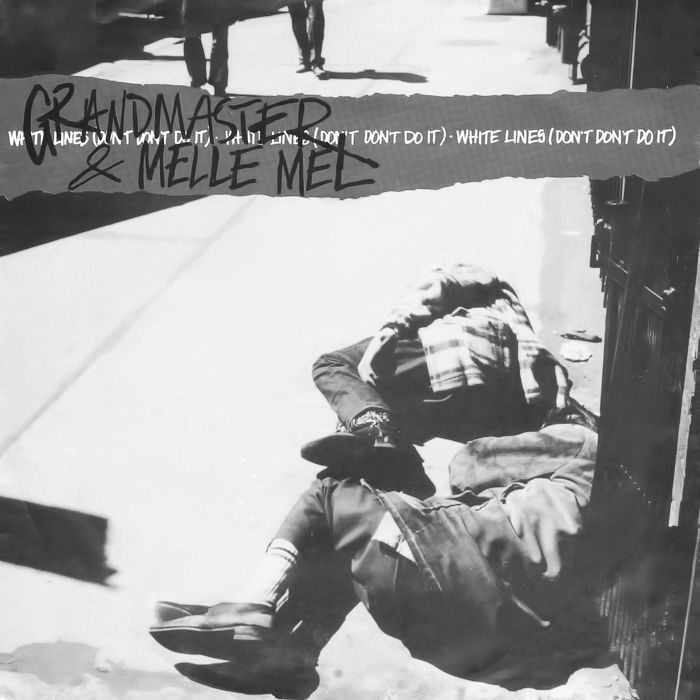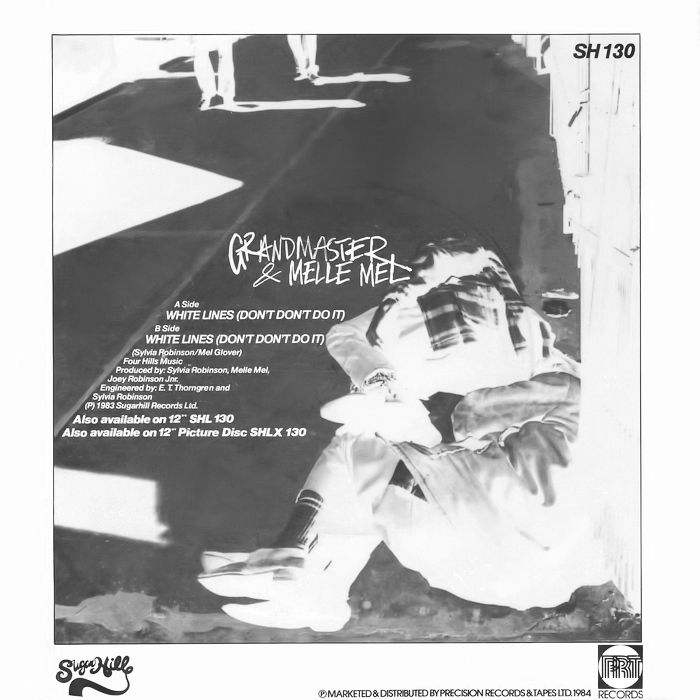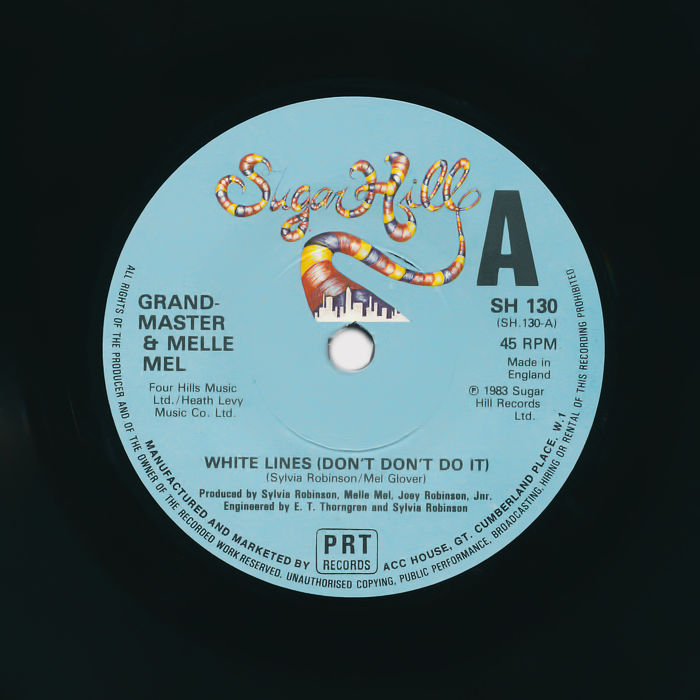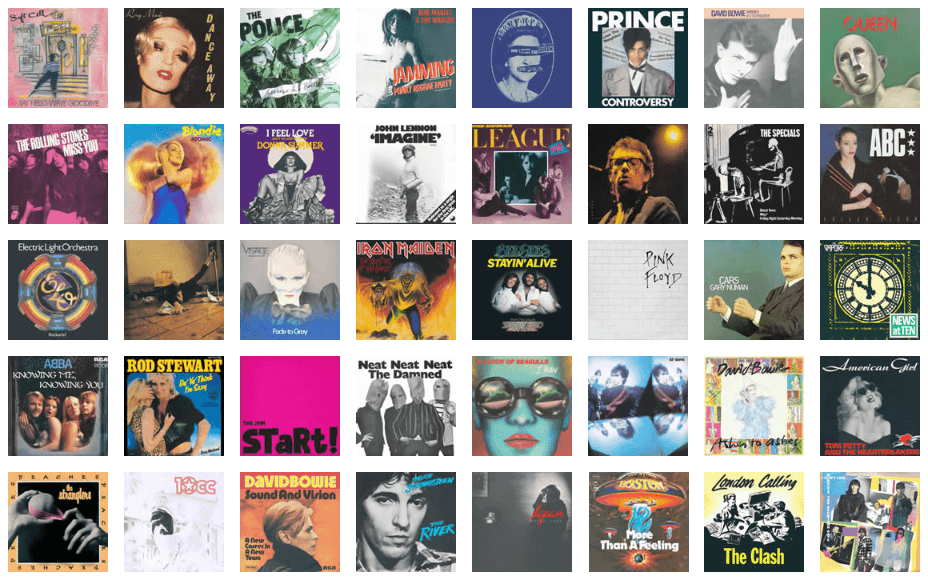The Story Behind The Song
The date: Tuesday 19 October 1982. The place: Sheraton Plaza La Reina, Los Angeles. A well-dressed, suave and silver-haired businessman smiles at his guests in Room 501. He points to the suitcase standing at his feet. "It's better than gold. Gold weighs more than that, for God's sake," he laughs. At that moment, federal agents burst in from the adjoining room and arrest car maker John Delorean for conspiring to obtain and distribute 55 pounds of cocaine, smuggled from Colombia.
"Pound for pound costs more than gold," raps Grandmaster Melle Mel in the first verse of White Lines (Don't Don't Do It), almost quoting Delorean. Noting that 55 lbs is equivalent to 24 kg, there is a direct reference to Delorean in the third verse: "A businessman is caught with 24 kilos He's out on bail and out of jail And that's the way it goes. Raah!" Two months after the release of White Lines, John Delorean no longer needed bail because he was acquitted on grounds of entrapment.
By contrast, the previous couplet in the rap is: "A street kid gets arrested, gonna do some time He got out three years from now just to commit more crime", highlighting the inequality between black kids and white businessmen. The rap has a social conscience and is also a warning not to get hooked. Indeed, parentheses were never so important in a song title, showing that it is obviously against cocaine use. Yet the majority of the upbeat and catchy song, littered with shouts of "blow!" and "freeze!" (both slang for cocaine) and "rock!" (crack cocaine) might be construed as glamorising it too.
This is especially true with the repeated phrase "(Ahhh) higher, baby", which sounds like active encouragement. The repetition ends with "And don't ever come down!" and "freebase!", which appears to be an exhortation to do more, not less, because freebase is a form of cocaine inhaled as vapour (like crack cocaine) leading to a more powerful rush and longer high.
The lyrics are really clever. Full of memorable lines and imagery, they simultaneously celebrate and warn against using. Without the parentheses emphasising the latter, the rap might have been misconstrued, almost certainly leading to a radio ban rather than filling the airwaves as it did. In fact, White Lines did not so much as scale the UK charts as camp inside the Top 40, staying over four months, the longest of any non-No. 1 in the calendar year. Throughout the summer of 1984, its hypnotic bass was constantly heard in clubs and pubs and on the radio, but the bass line was not original. To understand why, we must turn the clock back several years.
In the early 1980s, Liquid Liquid (no typo, by the way) were an avant-garde group fusing funk, dub and dance. They released three EPs, the final one, Optimo in 1983, included the dance track Cavern. It became popular among the New York hip-hop crowd, and came to the notice of rap label Sugar Hill Records, which appreciated the killer bass line. Well, "appreciated" is not quite the right word. "Appropriated" is better because - without permission - the bass was lifted and used on White Lines.
When White Lines became a global phenomenon, the independent label that released Cavern sued Sugar Hill, eventually winning. If there was ever a Pyrrhic victory, this was it. Not only did Sugar Hill file for bankruptcy before a cent of compensation was paid but the independent label also went under due to the financial strain of pursuing the claim. However, according to Liquid Liquid bassist and co-founder, Richard McGuire, "the matter was resolved some years later in an out-of-court settlement".
A final thought. Delorean's infamous drug deal gave him cultural immortality not only through White Lines. At the time of his arrest, the storyline for the classic movie Back To The Future (1985) was being drafted by Bob Gale and Robert Zemeckis. On seeing the gullwing Delorean DMC-12 in news reports, Zemeckis thought it would be better to have a futuristic-looking car as a time machine rather than a household refrigerator, which was the leading idea at the time. Without the drug bust, the film would have been very different and we would have also lost some memorable lines from one of 1984's most memorable hits.
We hereby instate White Lines (Don't Don't Do It) by Grandmaster Melle Mel on The Wall as No.19 Best Single of 1984
Legendary, funky hip-hop with hard-hitting lyrics, propelled by an impossibly fluid bass line. Has this "kick it", old school style hip-hop ever been bettered?Dave B




